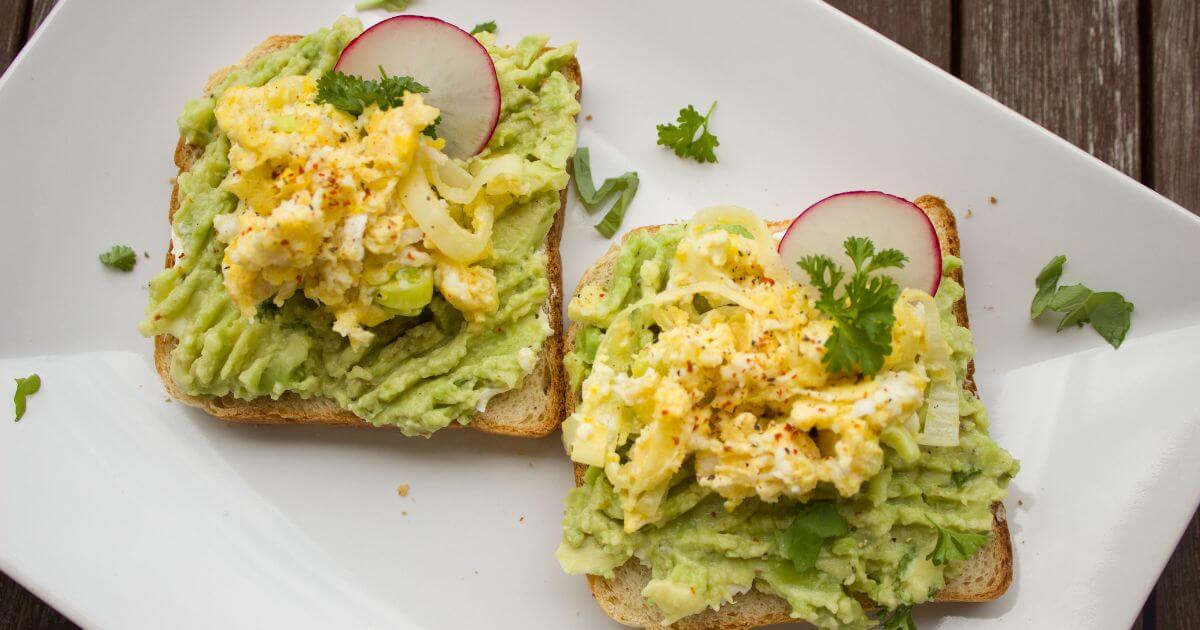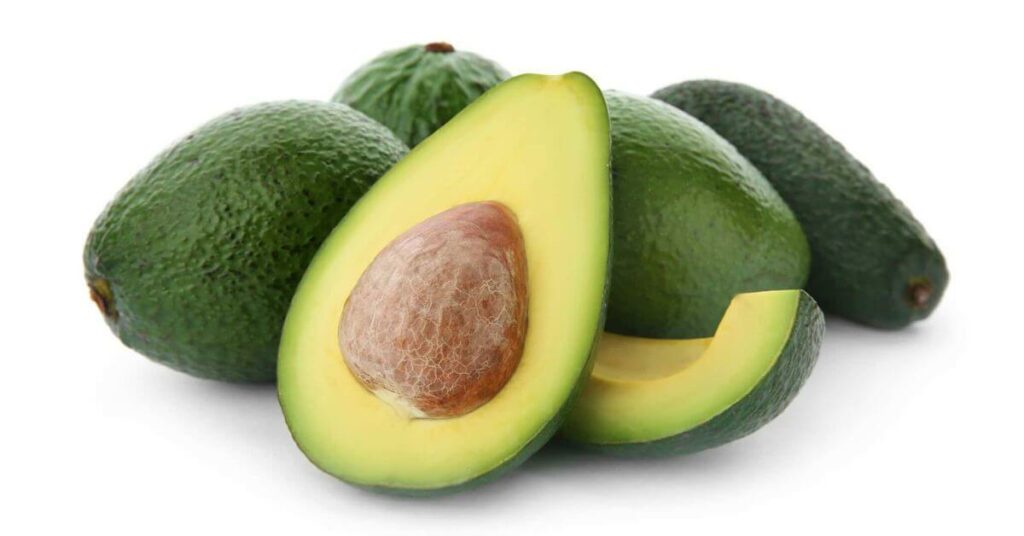As the ketogenic diet has exploded in popularity due to its myriad health benefits, avocados have become a staple food for keto devotees. But are avocados keto-approved? Their rich, creamy texture and delicious flavor make them a tempting addition to the high-fat, low-carb keto lifestyle. However, with the keto diet’s strict limitations on carb intake, should avocados be part of your ketogenic eating plan?
Let’s analyze avocados’ carb, calorie, and nutritional composition to determine if they can fit into a well-formulated keto diet. We’ll also explore some potential benefits and downsides to adding avocados to your ketogenic regimen.
What makes a food keto?
When determining if a food is keto-friendly, several factors must be considered. One of the most important factors is the macronutrient content, specifically the fat, protein, and carbohydrate levels. These three macronutrients play a crucial role in the ketogenic diet, drastically reducing carbohydrate intake and increasing fat consumption.
A keto-friendly food should have a low carbohydrate content. Since carbohydrates are:
- The body’s main energy source.
- Limiting their intake is essential to induce ketosis.
- A metabolic state in which the body burns fat for fuel instead of carbohydrates.
Foods with high carbohydrate content, such as bread, pasta, and sugary snacks, should be avoided.
Moderate protein content is another criterion for a keto-friendly food. Even though protein is essential, excessive consumption may inhibit ketosis by stimulating insulin production. Therefore, finding a balance and choosing foods with moderate protein levels is necessary.
High fat content is crucial for a food to be considered keto-friendly. The primary energy source on a ketogenic diet is fat, so it is important to consume sufficient amounts. Coconut oil, nuts, seeds, avocados, and other healthy fat sources are ideal choices for a ketogenic diet.
Additionally, a keto-friendly food should have a low glycemic index (GI). The GI measures how quickly carbohydrates in a food raise blood sugar levels. Foods with a high GI can cause spikes in blood sugar, which can hinder ketosis. Therefore, it is advisable to select foods with a low GI.
Types of keto diets
There are various types of keto diets, each with its own approach to achieving the state of ketosis. The following are three types commonly mentioned in the background information:
- Standard Keto Diet (SKD): This is the most common and traditional form of the keto diet. It involves consuming a high-fat, moderate-protein, and low-carbohydrate diet. The recommended macronutrient percentages for SKD are about 75% of calories from fat, 20% from protein, and 5% from carbohydrates.
- Targeted Keto Diet (TKD): TKD allows for a slightly higher carbohydrate intake, usually targeted around workouts. This means consuming a small amount (around 25-50 grams) of easily digestible carbohydrates shortly before or after exercise to fuel intense physical activity. The recommended macronutrient percentages for TKD are similar to SKD, with around 75% of calories from fat, 20% from protein, and about 5-10% from carbohydrates.
- Cyclical Keto Diet (CKD): CKD involves cycling between periods of strict keto diet and higher-carbohydrate refeeding days. Typically, individuals follow a strict keto diet for five or six days, followed by 1 to 2 days of high-carb refeeding. The high-carb days are designed to replenish glycogen stores and provide a break from the restrictions of the ketogenic diet. The recommended macronutrient percentages for CKD are similar to SKD on low-carb days but increase to approximately 70% of calories from fat, 25% from protein, and 5% from carbohydrates on refeeding days.
By understanding these different types of keto diets and their recommended macronutrient percentages, individuals can choose the approach that best suits their goals and lifestyle.
Avocado nutrition facts
Here is the nutrient data for a medium-sized avocado (136g) according to the USDA:
- Total Carbs: 12g
- Dietary Fiber: 10g
- Sugars: <1g
- Protein: 3g
- Fat: 21g
When subtracting the 10g fiber from the 12g total carbs, you’re left with just 2g net carbs per average medium avocado.
This carb count falls well within keto diet guidelines, making avocados a great high-fat, low-carb addition.
Are avocados keto-friendly?
Following our discussion of what makes a food keto-friendly, let’s examine avocados. Avocados are a great choice for the keto diet.
- They have low net carbohydrates, with approximately 6.4 grams per half avocado.
- They are also high in healthy fats, specifically monounsaturated and polyunsaturated fats. This makes them a valuable source of healthy fats for the keto diet.
- Avocados have a low glycemic index of 40, which means they won’t cause a significant spike in blood sugar levels.
- Additionally, avocados are nutrient-dense, containing essential vitamins and minerals. They make a great addition to a nutrient-dense keto diet.
Can you eat avocado on a keto diet?
Avocados are considered an excellent choice for a keto diet due to their nutritional profile and numerous health benefits. Avocados are often hailed as a keto-friendly fruit because of their high fat and low carbohydrate content.
Avocados are mainly composed of healthy monounsaturated fats, an ideal energy source for the body when following a ketogenic diet. These fats can help induce a state of ketosis, where the body burns fat for fuel instead of glucose. Additionally, avocados are low in carbohydrates, with approximately 15 grams of carbs per 100 grams, making them suitable for those following a low-carb diet.

Apart from being a high-fat food, avocados offer various health benefits. They are rich in fiber, which aids in digestion and helps maintain stable blood sugar levels. The high fiber content also contributes to feelings of fullness, reducing the chances of overeating or snacking on unhealthy foods.
Furthermore, avocados contain essential vitamins and minerals like vitamin K, vitamin E, vitamin C, and potassium. These nutrients support overall health while on a keto diet, promoting optimal bodily functions and helping to prevent nutrient deficiencies.
What are the health benefits of eating avocados on a keto diet?
The “Keto-Friendly Avocado” story goes beyond just its nutritional profile. Discovering the numerous health benefits of consuming avocados on the Keto Diet will make you a fan of this tasty fruit. Without further delay, let’s explore some of the significant health advantages of avocados.
Improves heart health
Avocados have gained immense popularity not only for their creamy texture and delicious taste but also for their numerous health benefits, particularly in improving heart health. This versatile fruit is packed with monounsaturated fat, oleic acid, and plant compounds that play a vital role in reducing blood pressure, preventing atherosclerosis, and reducing cholesterol levels.
The abundant monounsaturated fat in avocados has long been known to promote heart health. In addition to lowering bad cholesterol (LDL cholesterol), this healthy fat increases good cholesterol (HDL cholesterol). By doing so, avocados help to reduce the risk of heart disease and strokes.
Oleic acid, a monounsaturated fat present in avocados, has been shown to have a beneficial effect on blood pressure. Reduced inflammation and improved blood vessel function help lower blood pressure. As a result, this lowers the risk of high blood pressure, which is one of the leading causes of heart disease.
Additionally, avocados are rich in plant compounds, such as phytosterols, flavonoids, and carotenoids, contributing to heart health. In addition to having antioxidative properties, these compounds have anti-inflammatory properties that prevent plaque from forming, preventing the formation of atherosclerosis – a condition that narrows and hardens the arteries.
Lowers down the risk of metabolic syndrome
Avocados play a crucial role in lowering the risk of metabolic syndrome by regulating hormonal balance and providing numerous health benefits. High blood pressure, high sugar levels, excessive body fat, and abnormal cholesterol levels are all factors contributing to metabolic syndrome, which can lead to heart disease, stroke, and type 2 diabetes.
Avocados assist in regulating hormonal balance due to their rich nutrient profile. They are a great source of monounsaturated fats, which promote healthy hormone production and reduce inflammation. These fats also help absorb fat-soluble vitamins, including vitamins A, D, E, and K, vital in hormone synthesis. Furthermore, avocados contain phytosterols, natural compounds that resemble the structure of hormones, aiding in regulating hormonal levels within the body.
Moreover, the health benefits of avocados contribute to a reduced risk of metabolic syndrome. The high fiber content in avocados promotes satiety and prevents overeating, both risk factors for metabolic syndrome. In addition to being packed with antioxidants, they also reduce the risk of developing metabolic syndrome conditions due to their protection against oxidative stress and inflammation.
Helps in cancer treatment
One of the key reasons why avocados are beneficial for cancer treatment is their plant chemicals, such as carotenoids, flavonoids, and polyphenols. These compounds possess strong antioxidant properties that can help neutralize harmful free radicals, protecting healthy cells from oxidative damage and reducing the risk of cancer development.
Furthermore, avocados are known for their anti-inflammatory properties. Chronic inflammation can contribute to the growth and spread of cancer cells. The bioactive compounds found in avocados, including phytochemicals like quercetin and beta-sitosterol, have been shown to have anti-inflammatory effects. By reducing inflammation, avocados can potentially inhibit the progression of cancer.
In addition, research indicates that avocados may have potential benefits for alleviating existing cancerous cells. Studies have found that certain components in avocados, such as avocatin B, can selectively target and destroy leukemia stem cells while leaving healthy cells unharmed. This targeted approach is promising for cancer treatment as it can potentially minimize adverse side effects associated with conventional therapies.
Great for eye health
Avocados are great for eye health because they are rich in two important phytochemicals: lutein and zeaxanthin. The antioxidants in these foods keep your eyes healthy and reduce the risk of age-related eye diseases such as macular degeneration and cataracts. Macular degeneration is a leading cause of blindness; cataracts can cause blurred vision and ultimately lead to vision loss.
Lutein and zeaxanthin are naturally occurring pigments in the macula, a part of the eye responsible for focusing central vision. They protect against harmful blue light and act as a natural sunscreen for the eyes. By filtering out this damaging light, lutein and zeaxanthin help reduce oxidative stress and inflammation, preserving the macula’s health.
Research suggests that increased intake of lutein and zeaxanthin through foods like avocados can significantly lower the risk of macular degeneration and cataracts. These phytochemicals accumulate in the retina and lens, acting as potent antioxidants and protecting against damage caused by free radicals.
Including avocados in your diet can be an effective way to boost your eye health. Whether you enjoy avocados on toast, in salads, or as a guacamole dip, you can be confident that you are providing your eyes with essential nutrients. Give your eyes the gift of lutein and zeaxanthin by adding this nutritious fruit to your diet.
Improving digestive health
Avocados are packed with dietary fiber, which supports healthy digestion. The presence of fiber in the stool adds bulk to it and helps to prevent constipation by promoting regular bowel movements.
Regarding digestion, avocados are beneficial because they are easy on the stomach and easily digested. This makes them an ideal food for individuals with sensitive stomachs or digestive disorders. Avocados are also known to soothe and heal the digestive tract due to their high content of healthy fats, vitamins, and minerals.
Additionally, avocados can lower cholesterol levels, which can improve digestive health. While avocados contain healthy fats, they are also rich in monounsaturated fats, which have been shown to help reduce bad cholesterol levels. Healthy cholesterol balance is essential for optimal digestion, which avocados can promote in your diet.
Reducing depression symptoms
Folate has another important function in preventing excessive homocysteine production. Elevated levels of homocysteine have been associated with an increased risk of depression. By consuming avocados, which are rich in folate, individuals can help regulate homocysteine levels and reduce their risk of developing depression.
In addition to folate, avocados are packed with other essential vitamins and minerals that directly impact mood. Vitamin B6, for example, is involved in synthesizing feel-good neurotransmitters, while vitamin E is an antioxidant that protects the brain from oxidative stress. These vitamins, along with minerals such as magnesium and potassium, work together to improve overall mood and reduce symptoms of depression.
Avocados also contain various compounds and antioxidants that contribute to their depression-reducing properties. These include phytochemicals like lutein, zeaxanthin, and polyphenols, which have been shown to have anti-inflammatory and antioxidant effects on the brain. By reducing inflammation and oxidative stress, avocados can help alleviate depressive symptoms and promote a healthier mental state.
Weight loss
One of the key benefits of avocados for weight loss is their ability to help reduce food cravings. Avocados contain monounsaturated fats, which reduce hunger and increase feelings of fullness, resulting in a lower calorie intake throughout the day. By reducing food cravings, avocados can contribute to weight loss by preventing overeating and unnecessary snacking.
Additionally, avocados can keep you feeling full for longer periods of time. This is due to their high fiber content, which slows digestion and helps control blood sugar levels. The combination of healthy fats and fiber in avocados can contribute to a longer-lasting feeling of satiety after a meal, reducing the temptation to reach for unhealthy snacks or consume additional calories.
Furthermore, avocados have the potential to aid in burning stored fat for energy. Their monounsaturated fats have been shown to stimulate the production of adiponectin, a hormone that affects the metabolism and helps break down stored fat. By including avocados in your diet, you may be able to enhance your body’s ability to burn fat and support weight loss.
How many carbs does an avocado have?
With its rich, creamy texture and smooth flavor, avocado has become a staple on low-carb diets. But are avocados permitted on strict lower-carb eating plans? How many carbohydrates does an average avocado contain?
A medium-sized avocado (about 136 grams) contains 12 grams total carbohydrates. Most of these carbs (10 grams per avocado) come from dietary fiber. Fiber passes through our bodies undigested without directly impacting blood sugar levels.
Additionally, avocados contain minimal sugars, with less than 1 gram per avocado.
When you account for the 10 grams of fiber and subtract this from the total carbs, you’re left with just 2 “net” grams of carb per average medium avocado.
This makes avocados a permitted food on ketogenic diets, with their low digestible carb load and high amounts of monounsaturated fats perfectly suited to very low-carb, high-fat eating plans.
How many avocados can I eat on keto?
When following a keto diet, it is important to consider the recommended portion size of avocado and overall fat and carbohydrate intake. Avocados have a low carbohydrate count and a high-fat content, making them ideal for a keto diet.
The recommended portion size of avocado for a keto diet is typically half an avocado, which equates to around 100 grams. This serving size contains approximately 15 grams of healthy fats and only 2 grams of net carbohydrates. When following a keto diet, it’s important to monitor your carb and fat intake to remain in ketosis, where your body burns fat instead of carbohydrates.
Incorporating avocado into a keto diet is simple and versatile. One way is to use avocado as a spread instead of butter or mayonnaise. It adds a creamy texture and a boost of healthy fats to sandwiches or wraps. Another option is to add it to salads, either sliced or diced, for added creaminess and fat content. Lastly, blending avocado into smoothies is a fantastic way to increase fat intake while enjoying a refreshing and nutritious beverage.
How to eat avocados on the keto diet

The ketogenic or “keto” diet often bans most fruits but makes an exception for avocados due to their high-fat content and low sugar and carb counts. However, with nearly 250 calories for the average medium avocado, you need to be mindful of your portion sizes.
Here are some tips for enjoying avocados within your keto guidelines:
- Add 1⁄4 or 1⁄2 an avocado to your smoothies with approved keto fruits like berries or greens like spinach. The healthy fats make your smoothie more satisfying. Or top your keto chia pudding with some cubes of avocado for healthy fat.
- Dice up some avocado as a substitute for croutons in a keto salad. Avocado gives you creaminess instead of carby crunch.
- Mash up an avocado with olive oil, garlic, and lemon juice for a quick veggie dip. Dipping raw veggies into avocado dip gives you more fat and makes them more enjoyable on keto diets.
- Mix diced avocado into chicken or tuna salad instead of regular mayo for “avo mayo.” You’ll up the nutrition without the added carbs.
- Replace buns or bread with avocado slices on burgers, club sandwiches, or breakfast sandwiches.
With some creativity, avocados’ texture, flavor, and nutritional profile can enhance high-fat keto meals without boosting your daily carb counts. Just stick to 1⁄2 an avocado or less per meal and use Wisely!
The bottom line
Avocados can most certainly be part of a well-formulated ketogenic diet based on their high dietary fat content, rich nutrient density, and low net carb count per serving. Their versatility and potential health benefits make avocados one of the top keto fruits to incorporate.
Just be mindful of portion sizes, slowly acclimate your body to fiber intake, and experiment with the many delicious keto recipes you can make with this nutritious green fruit.
Pair avocado with non-starchy veggies, healthy fats like olive oil, fatty fish and meat, nuts and seeds, moderate protein, and other low glycemic fruits like berries. This makes for well-balanced, nutrient-dense keto meals and snacks you can sustainably follow long-term.
So don’t hesitate to get your healthy fats in with delicious avocados while chasing your keto diet goals!
